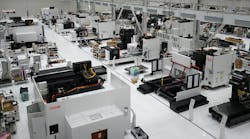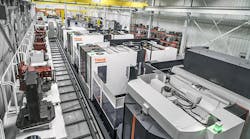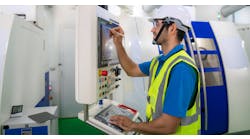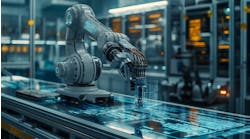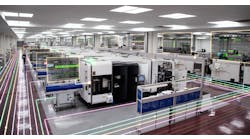Machine-tool builder Yamazaki Mazak Corp. has started assembling its Variaxis Series five-axis vertical machining centers and Versatech Series five-axis double-column machining centers at a new plant in Japan, it’s sixth in that country and the 11th it has established worldwide. The 56,000 m2 plant at Inabe City, southwest of Tokyo, was announced in 2016 and is targeted to be fully operational by 2019.
The new plant reportedly represents a $176 million capital investment. Once complete, it will replace the assembly operations now carried out at the Seiko Plant in nearby Kuwana City. The latter operation will serve as a machining center in support of the newer plant.
In line with much of Mazak’s global technology strategy, the Inabe facility is outfitted with advanced monitoring functions that support Industrial Internet of Things (IIoT) protocols. It is a greenfield version of Mazak’s iSmart Factory concept, which uses advanced manufacturing cells and production systems to maximize productivity and flexibility, with “free-flow data sharing” for machine and process control monitoring. The goal is to optimize manufacturing by coordinating all available technology, information, and resources, in line with IIoT theories.
Mazak Corp.’s North American assembly center in Florence, Ken., is also on track for the Mazak iSmart Factory™ concept, which involves “complete digital integration of factories” via the MTConnect® open communications protocol and Mazak’s Smooth Technology process support software. The factories will collect data from operating machine tools, work cells, etc., to optimize performance, product quality, scheduling, etc.
The machine-tool builder also noted the Inabe plant has environmental control technology that prevents temperature changes beyond ±1ºC on the production floor.
While not yet fully operational, the new plant’s current capabilities “have already increased Yamazaki Mazak’s overall production capacity in Japan by 20%,” according to its announcement. It plans prioritize continued output there to meet global machine-tool demand.
